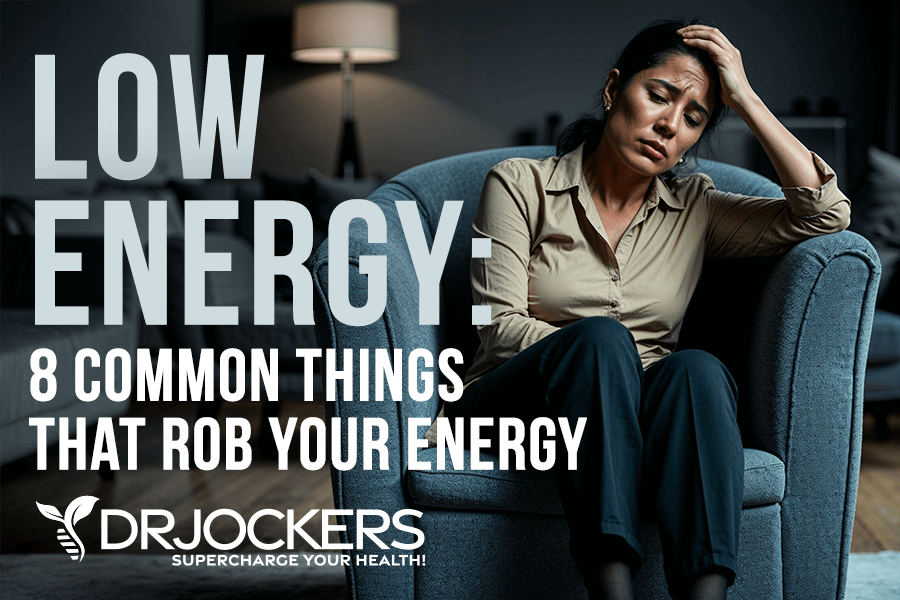 Low Energy: 8 Common Things That Rob Your Energy
Low Energy: 8 Common Things That Rob Your Energy
Low energy and fatigue are one of the main problems that millions of Americans are facing every day. Waking up tired, feeling drained all day, and relying on coffee, energy drinks, and sugar to keep up with our busy lives seems to be the norm. The truth is that having low energy is far from normal. You don’t have to feel tired all day. You can combat fatigue and enhance your energy naturally by making a few simple dietary and lifestyle changes.
In this article, you will learn about 8 common things that can rob your energy. I will share with you 7 strategies and a bonus tip to improve your energy, reduce fatigue, and regain your health.
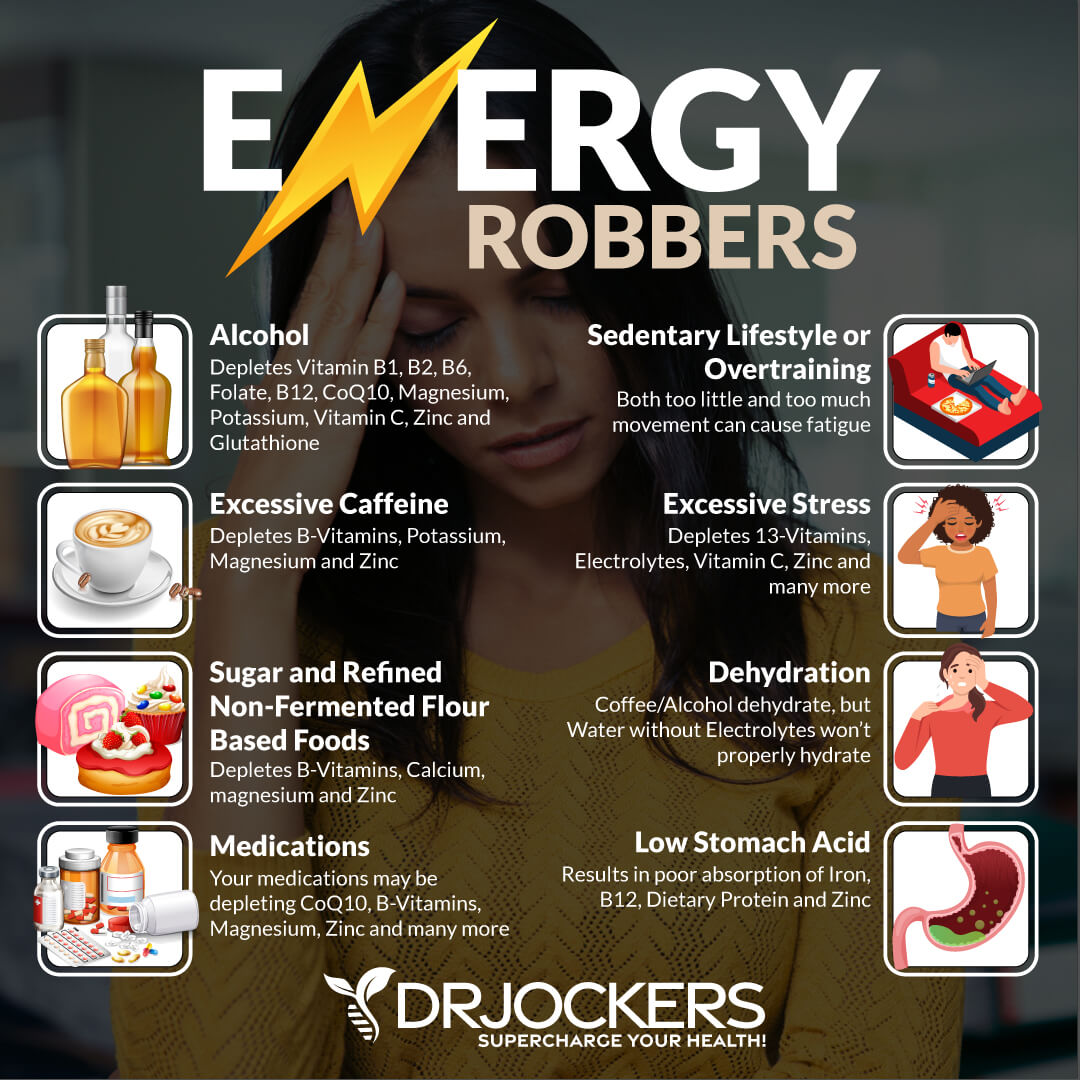
8 Causes of Low Energy
When it comes to things that may rob your energy, poor sleep may be the first thing that comes to mind. However, there are many dietary, lifestyle, and health factors that may contribute to low energy and fatigue. Let’s look at them one by one.
Alcohol
Our culture views alcohol as something that can help us relax after a busy day or fall asleep more easily. That is not the case, though. Sure, you may feel more relaxed after a glass of drink in the evening, but it is not beneficial for your overall energy.
Drinking alcohol may compromise your quality of sleep. You may experience more interrupted sleep, end up sleeping for a shorter period of time, or simply don’t experience restful sleep. Chances are that you will wake up tired and unenergetic in the morning. Alcohol may also deplete your vitamins B1, B12, and C, CoQ10, magnesium, potassium, zinc, and glutathione levels, which are all essential for your healthy energy levels (1).
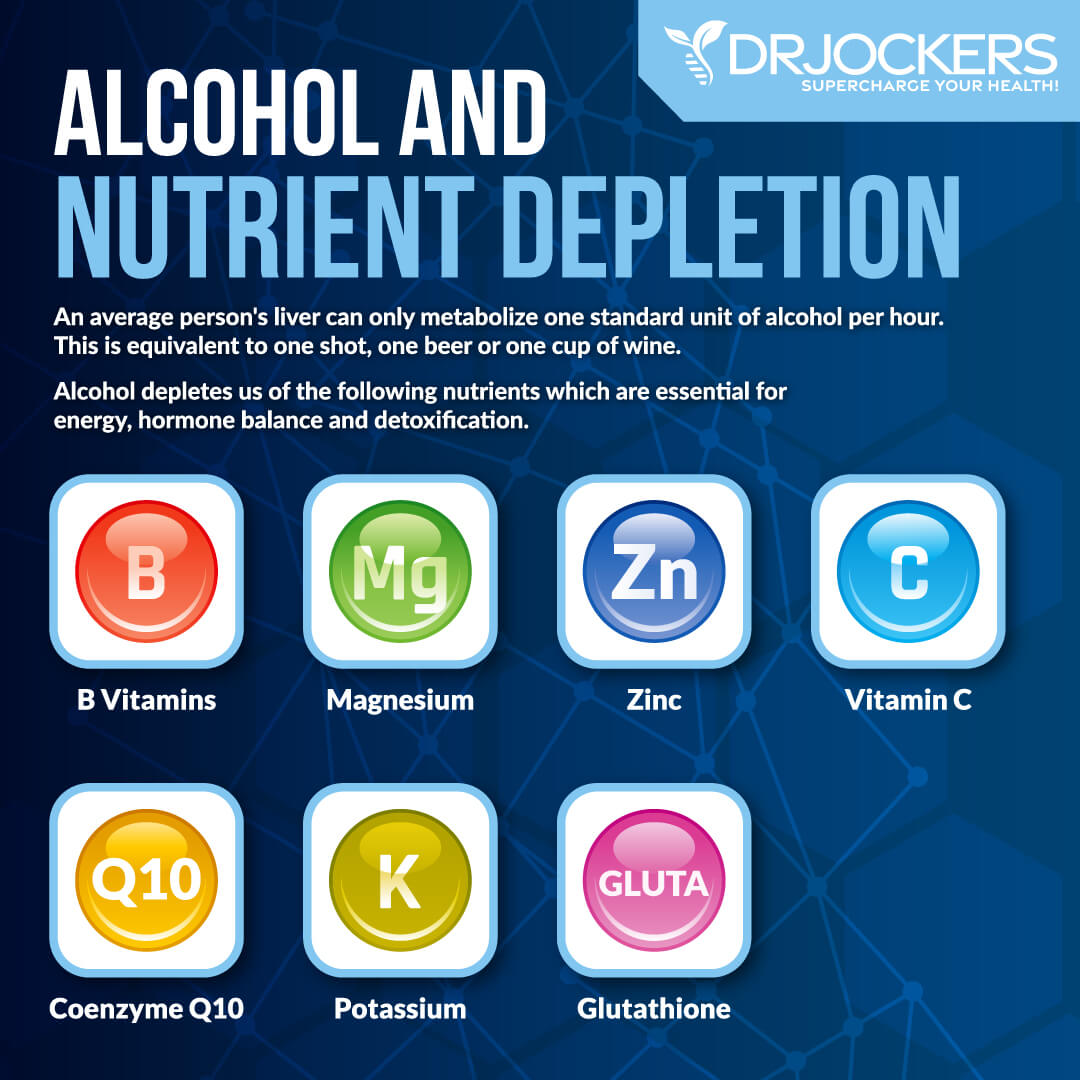
Excessive Caffeine
If you consume it in moderation, coffee may be good for you. Some studies have found that coffee may have neurological benefits and may help prevent dementia, Alzheimer’s disease, and Parkinson’s disease. However, drinking an excessive amount of caffeine or drinking caffeine if your body is sensitive to, can rob your energy (2, 3).
You may turn to a morning or mid-day cup of coffee to energize you, but chances are, after the initial energy spikes, you will notice a drop in energy. Drinking too much caffeine or consuming it close to bedtime may throw off your natural sleep cycle. Relying on coffee, green or black tea, or other caffeinated drinks instead of proper nutrition and quality sleep can drain your energy over time. Caffeine can also deplete your B vitamins, potassium, magnesium, and zinc levels, which can be further problematic if your diet is already compromised (4).
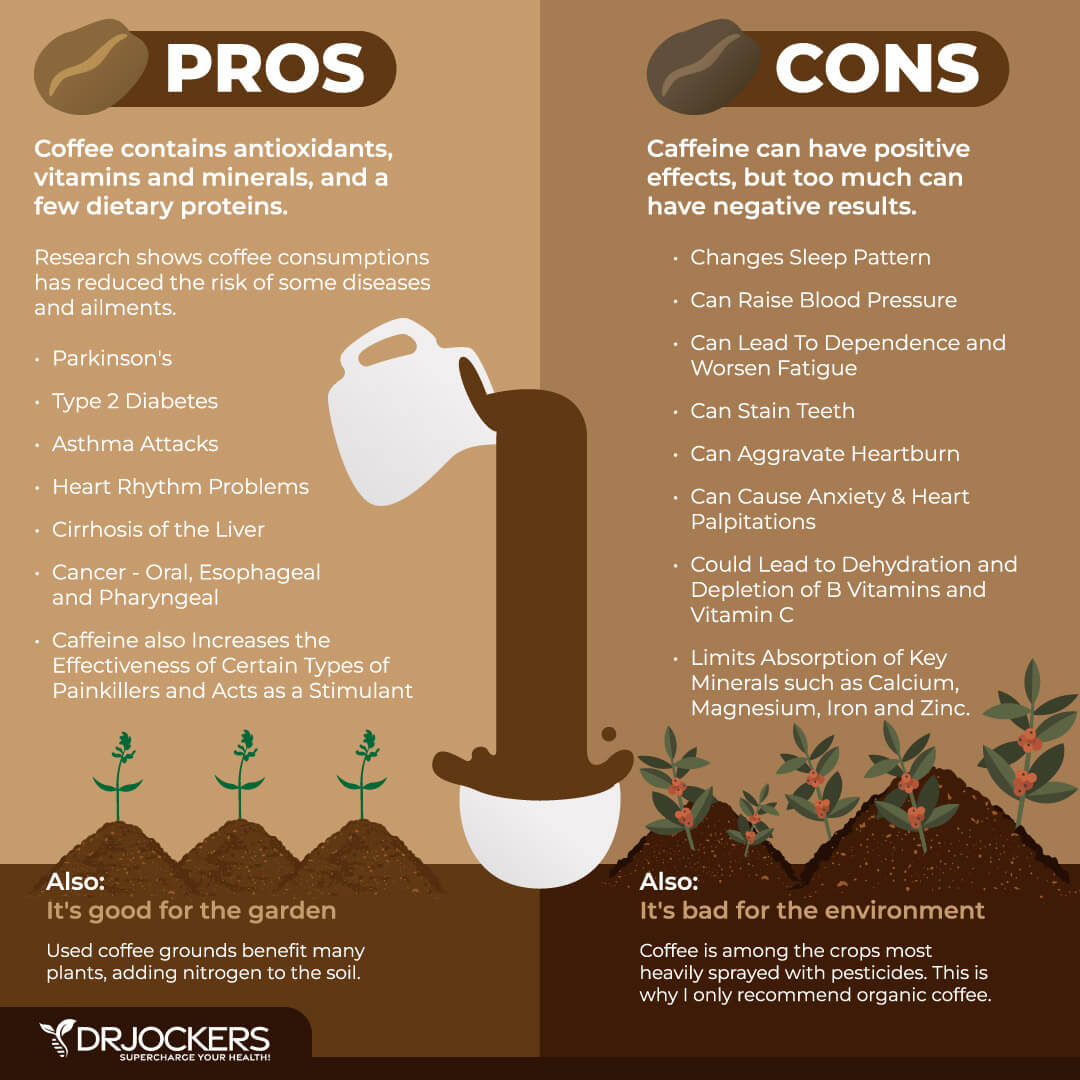
Sugar & Refined Carbs
When it comes to food, sugar and refined carbohydrates are the number one culprits that may rob your energy. Processed grains that can be found in white pasta, white bread, and white rice have little nutritional value. Because they have been ripped from their fiber-containing outer layer, called bran, during processing, they digest quickly than whole grains. This leads to a very quick rise in blood sugar and insulin, followed by a sugar crash and a serious drop in energy (5, 6).
A similar sugar-high and sugar-crash can be observed with any high-sugar or refined carb foods. For example, if you consume sugary cereals, muffins, or pancakes for breakfast, your body will experience a dramatic rise in blood sugar in the morning hours.
However, within a few hours, you will notice a sugar drop and low energy again. You will probably also feel hungry. Candy bars, cookies, and other sugary snacks are empty calories that lead to blood sugar fluctuations and low energy. Refined carbs and sugars are certainly not energy-sustaining for your day. They may also deplete your B vitamins, calcium, and magnesium levels.
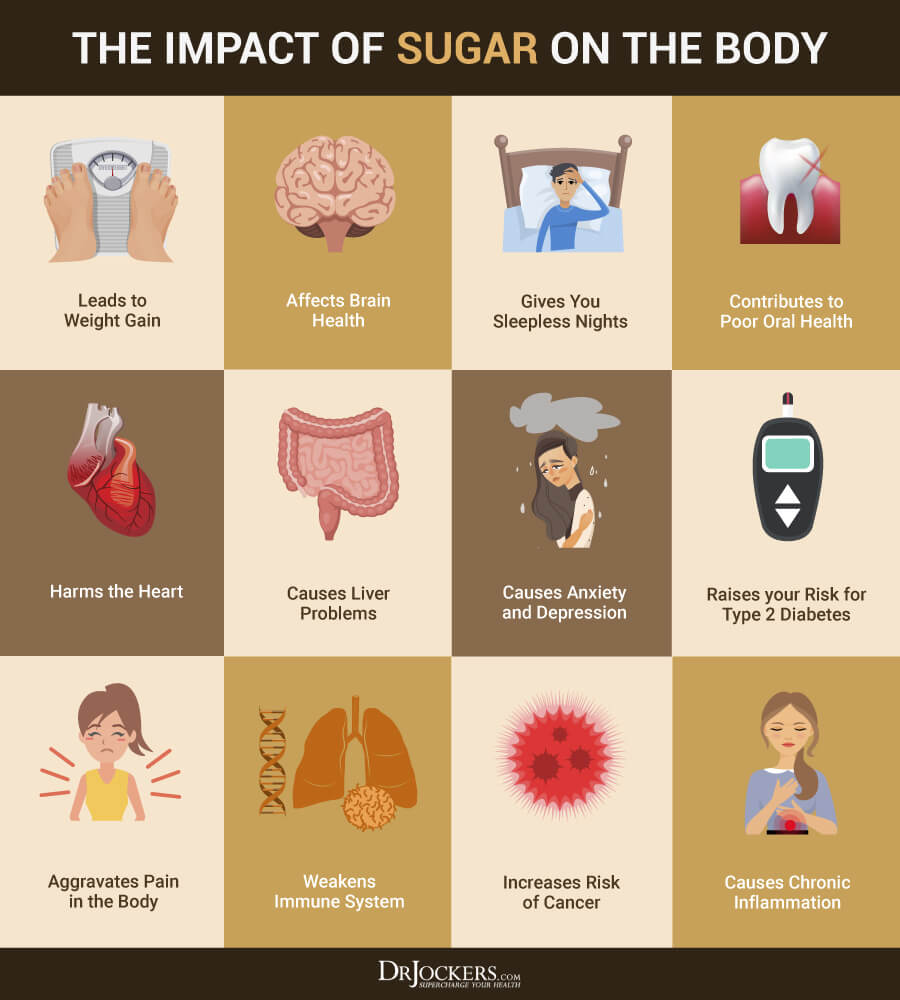
Medications
If you feel low energy or fatigue on a regular basis, it is important to look at the list of medications you are taking. Certain medications may cause drowsiness, low energy, or fatigue as a side effect. Medications may also deplete your B vitamins, zinc, magnesium, CoQ10, and other nutrient levels.
Allergy medications (antihistamines) and medication for motion sickness often cause drowsiness. Some people prefer the non-drowsy versions for these reasons. The ‘pm version’ of certain over-the-counter cold medications and pain killers may also interrupt your sleep cycle and lead to fatigue the next day. Sleeping pills may also interrupt your sleep cycle and rob you of energy in the long run.
Anti-depressants, especially tricyclics, anti-anxiety medications, especially benzodiazepines, beta-blockers for high blood pressure and migraines, muscle relaxants, opioids, anti-nausea medication, certain cancer medications, and anti-epilepsy medication may all make you tired, drowsy, and unenergetic.
Prescription stimulants, such as Adderall® and Ritalin®, may increase your energy levels initially, but when taken long-term or abused, they may lead to increased tolerance levels, fatigue, and serious mood or health issues. If your medication is making you tired, talk to your doctor if switching medications or choosing natural treatment options may work for you (7, 8).
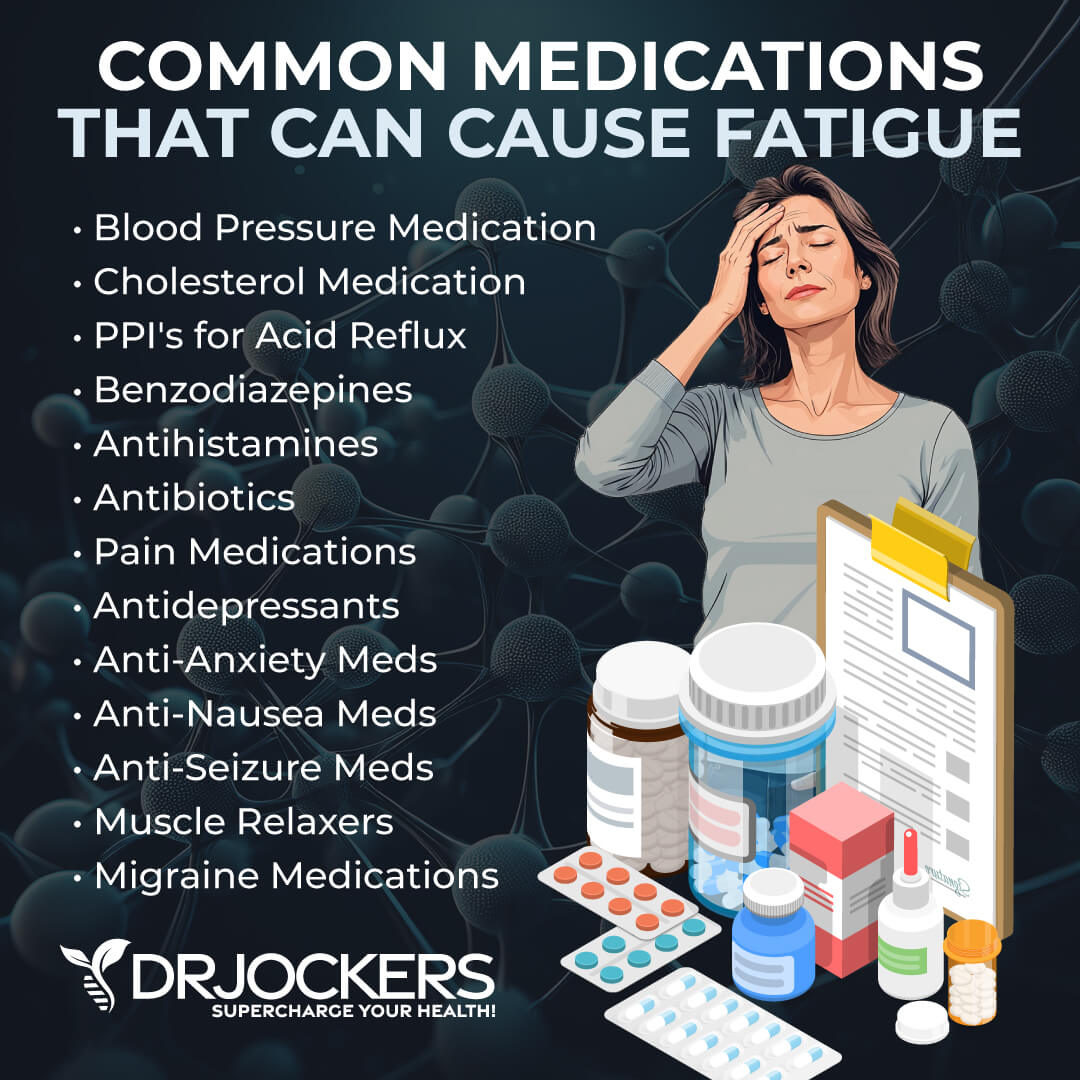
Sedentary Lifestyle
The fact that being sedentary may rob you of energy may surprise you. Shouldn’t exercise be energy-robbing, and not exercising promote rest? Over-exercising and over-training can certainly rob your energy; however, not exercising and being sedentary can fatigue you in a different way.
Not moving your body enough may lead to poor circulation and may result in fatigue. Regular exercise can energize you physically, mentally, and emotionally. It increases the release of endorphins, which boosts your mood and mental health. It helps your body to become stronger, preventing fatigue during your everyday activities.
It may also help to boost your immune system. When your body gets used to a sedentary lifestyle, it may become weaker and less energetic. The longer you don’t move, the more likely you are to experience lower motivation and less mental energy to start. To keep your energy levels in a healthy state, make sure to exercise regularly without overtraining your body.
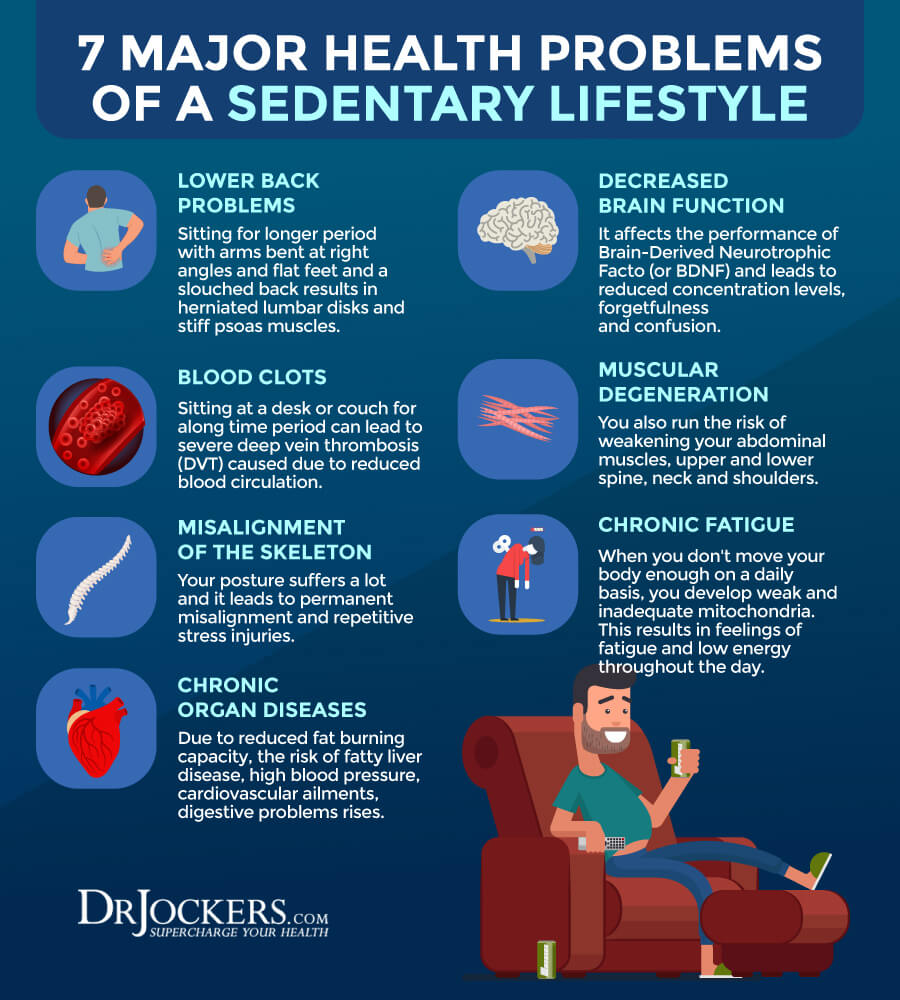
Excessive Stress
Excessive or chronic stress can be detrimental to your health and quickly drain your energy levels. Just think about it. If a bear were chasing you, you would experience high stress and would use all your energy to run away. In such crisis situations, your body increases cortisol, the fight-or-flight stress hormone. The problem is that your body cannot make a difference between a bear attack and a stressful day at work.
When you are under excessive stress, your body feels like a bear is chasing you all day and all night long. It increases your cortisol levels, which results in depleted cortisol storage, more anxiety, and low energy. Excessive stress can also deplete your body of vitamin C and 13 other vitamins, zinc, electrolytes, and other essential nutrients (9).
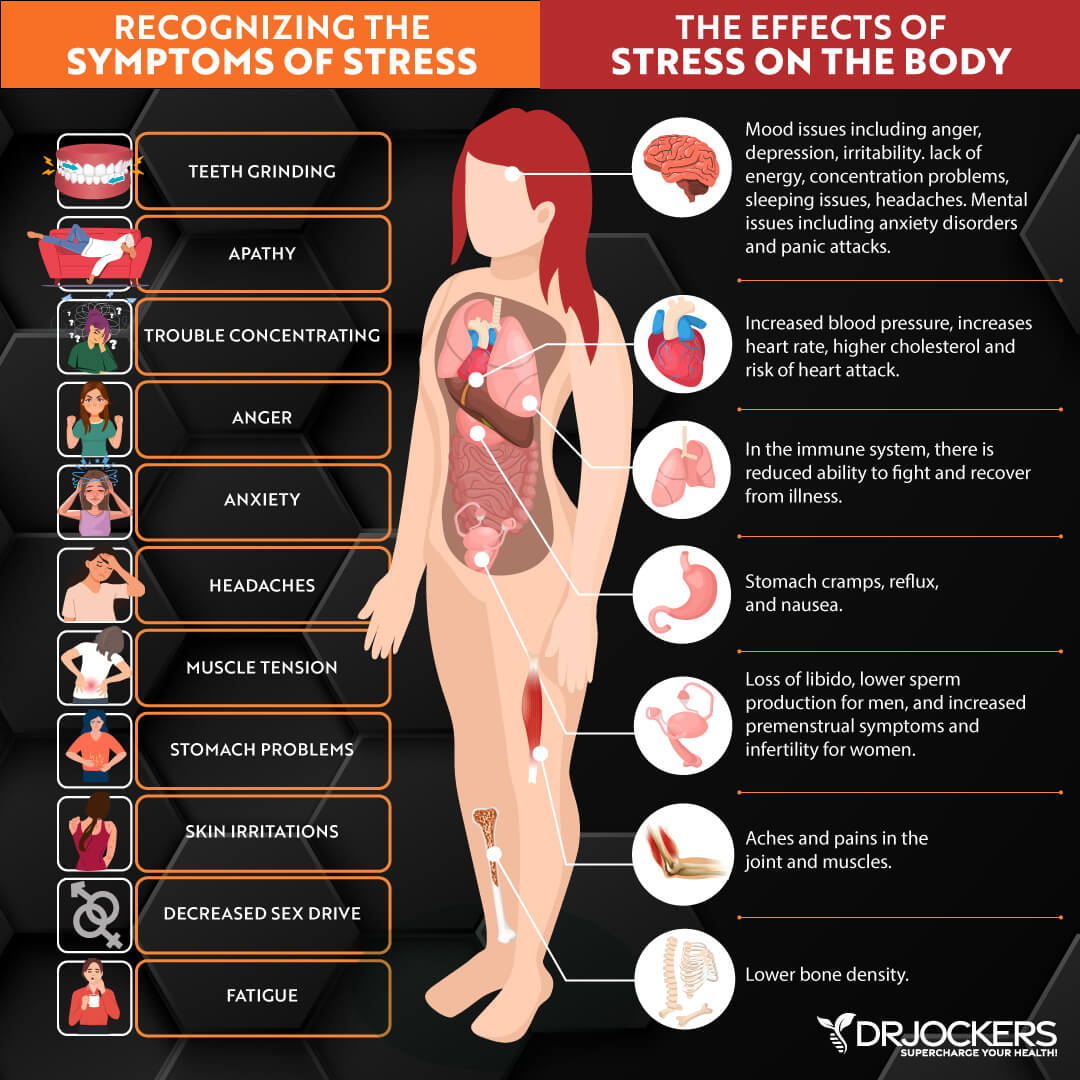
Dehydration
The truth is that most people don’t drink enough water. Instead, they rely on coffee, tea, soda, sugary drinks, and energy drinks. The problem is that coffee, sugary drinks, and alcohol, instead of providing hydration, can dehydrate your body. For proper hydration, you need plenty of water.
Water helps your body to flush out toxins, hydrate your tissues, aid your immune system, and support your energy. If you are dehydrated, your body cannot pump enough blood to your brain and heart.
This means that both have to work harder, taking away your energy. To keep your energy levels up, you need to drink at least 8 to 10 glasses of clean, purified water a day, add some green juices or herbal tea as a bonus, and eat hydrating vegetables for extra minerals and vitamins.
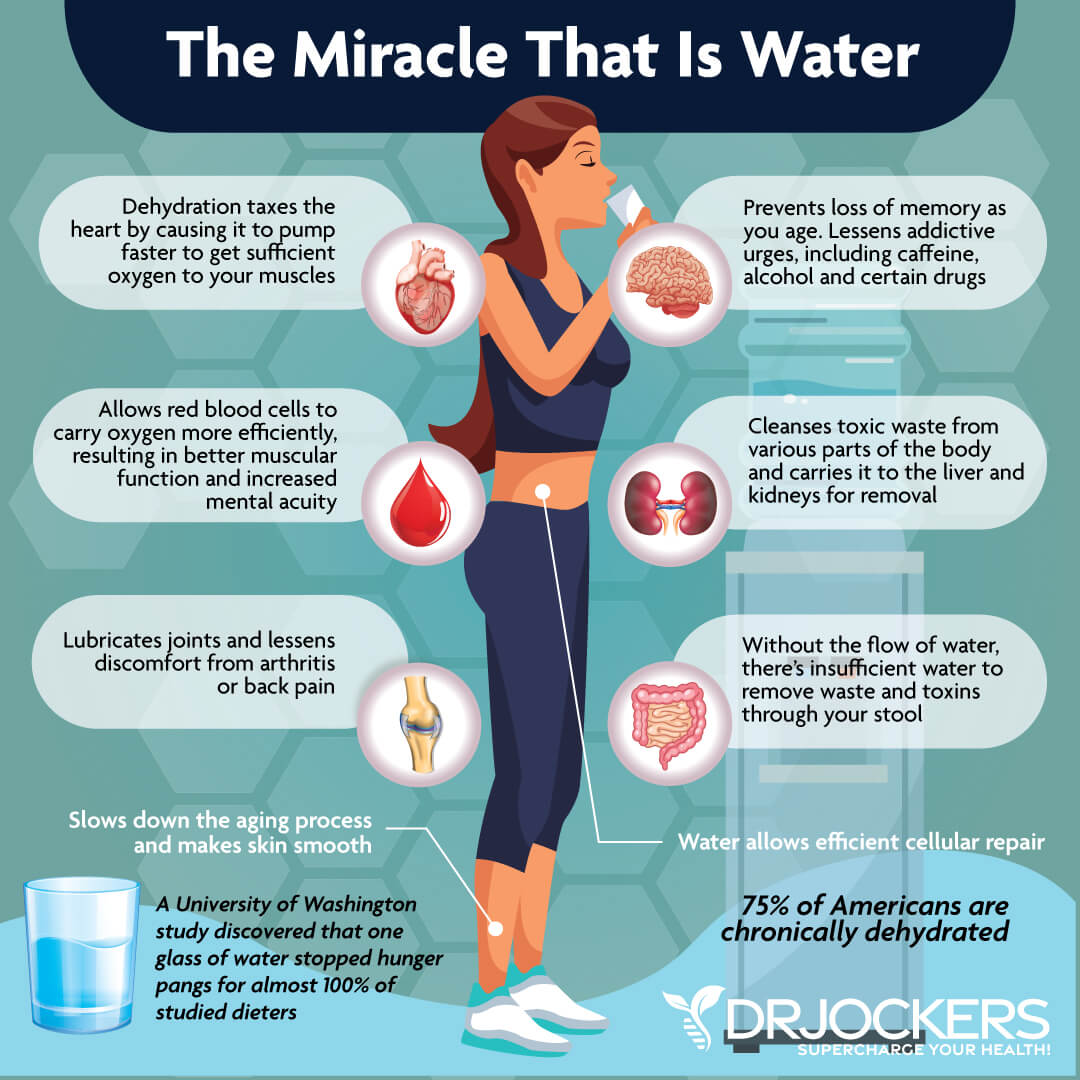
Low Stomach Acid Levels
Eating a healthy diet and absorbing the nutrients in your food is essential for healthy energy levels. However, when your gut health is compromised, it may also rob you of energy. This is how low stomach acid levels come into the picture.
Low stomach acid may lead to an array of gut health issues, including acid reflux, belching, bloating, gut bacteria overgrowth, pain, and overall poor digestion. Having low stomach acid levels can lead to poor absorption of iron, vitamin B12, zinc, and dietary protein necessary for healthy energy levels.
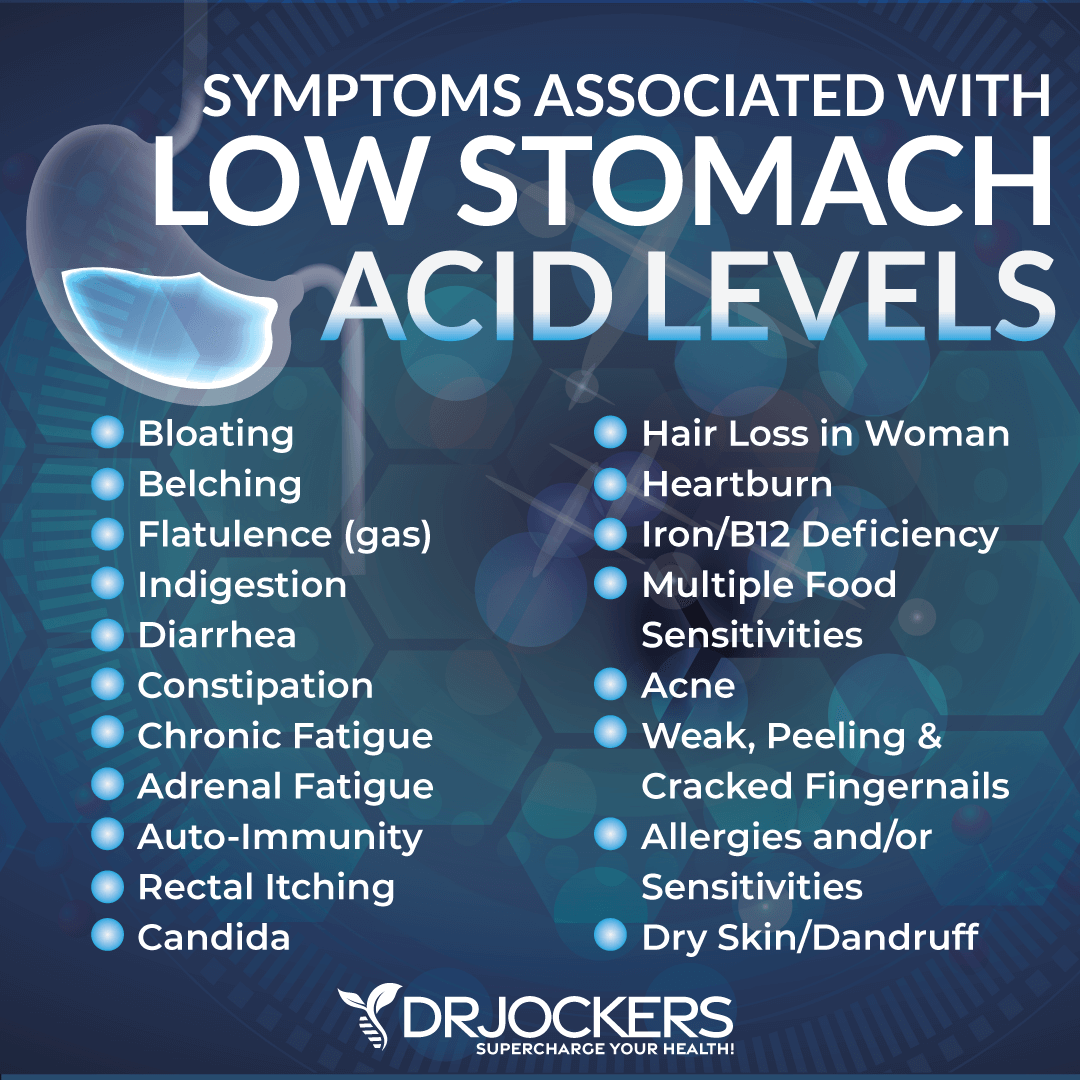
7 Steps to Improve Energy Levels
Now that you understand what may rob your energy, it’s time to get your energy back. There is no reason that you should feel tired or unmotivated.
Check out some simple steps to improve your energy levels naturally. Begin implementing each one of these strategies, and you will see a big shift in your energy, mental clarity, and overall quality of life!
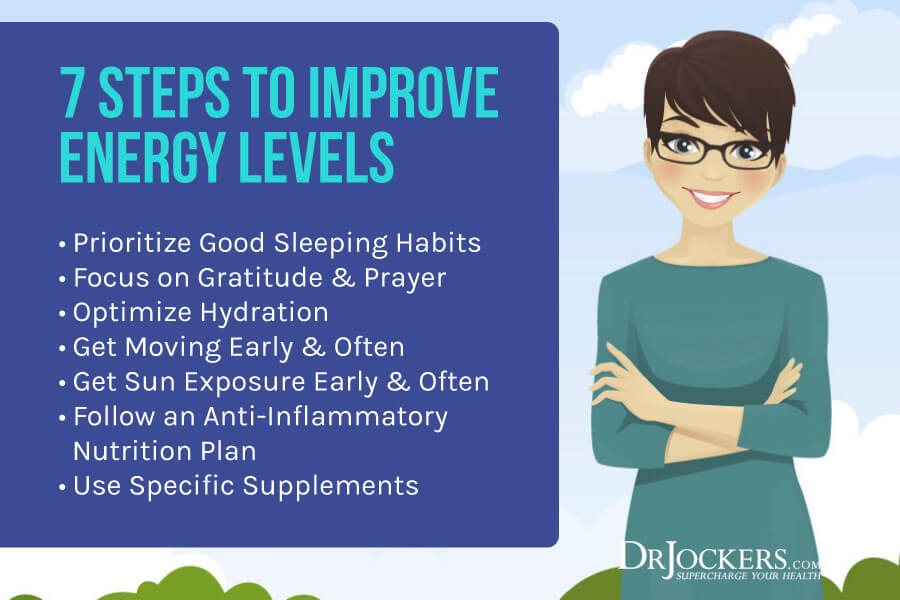
Prioritize Good Sleeping Habits
Without regular, proper sleep, your body doesn’t get an opportunity to rest and repair. Good sleep is absolutely essential for improving your energy.
Support your circadian rhythms by going to bed around the same time and waking up around the same time each day. Make sure to sleep 7 to 9 hours at night. Develop a relaxing night-time routine that works for you. Meditation, prayer, breathwork, relaxation tapes, coloring, journaling, and keeping a gratitude list are all fantastic calming activities before bed.
Invest in a comfortable bed, sheets, and pillows. Using a sleep mask or curtains that block out the light may be helpful. I also recommend this strategy to improve your nasal breathing at night for better sleep and more energy. To learn more strategies to improve your sleep quality, read this article.

Focus on Gratitude & Prayer
The attitude of gratitude shouldn’t be saved for the month of November and Thanksgiving. Emotional and mental fatigue and a negative outlook on life can drain your physical energy levels as well. Changing your attitude, mindset, and emotional state can help to elevate mental fatigue, improve your mood, and increase your physical energy as well.
A regular gratitude practice, prayer, or spiritual practices are some of the best ways to improve your mood and energy. Negative emotions and gratitude simply cannot exist at the same time. Start your days by counting the blessings in your life and by saying a short prayer.
Stop throughout the day to appreciate new things. Say a prayer before meals or bedtime or whenever you seek connection to a higher power. Keep a gratitude journal and write down at least three things you are grateful for. Coming up with new things you are grateful for each night is a great way to expand positive energy.
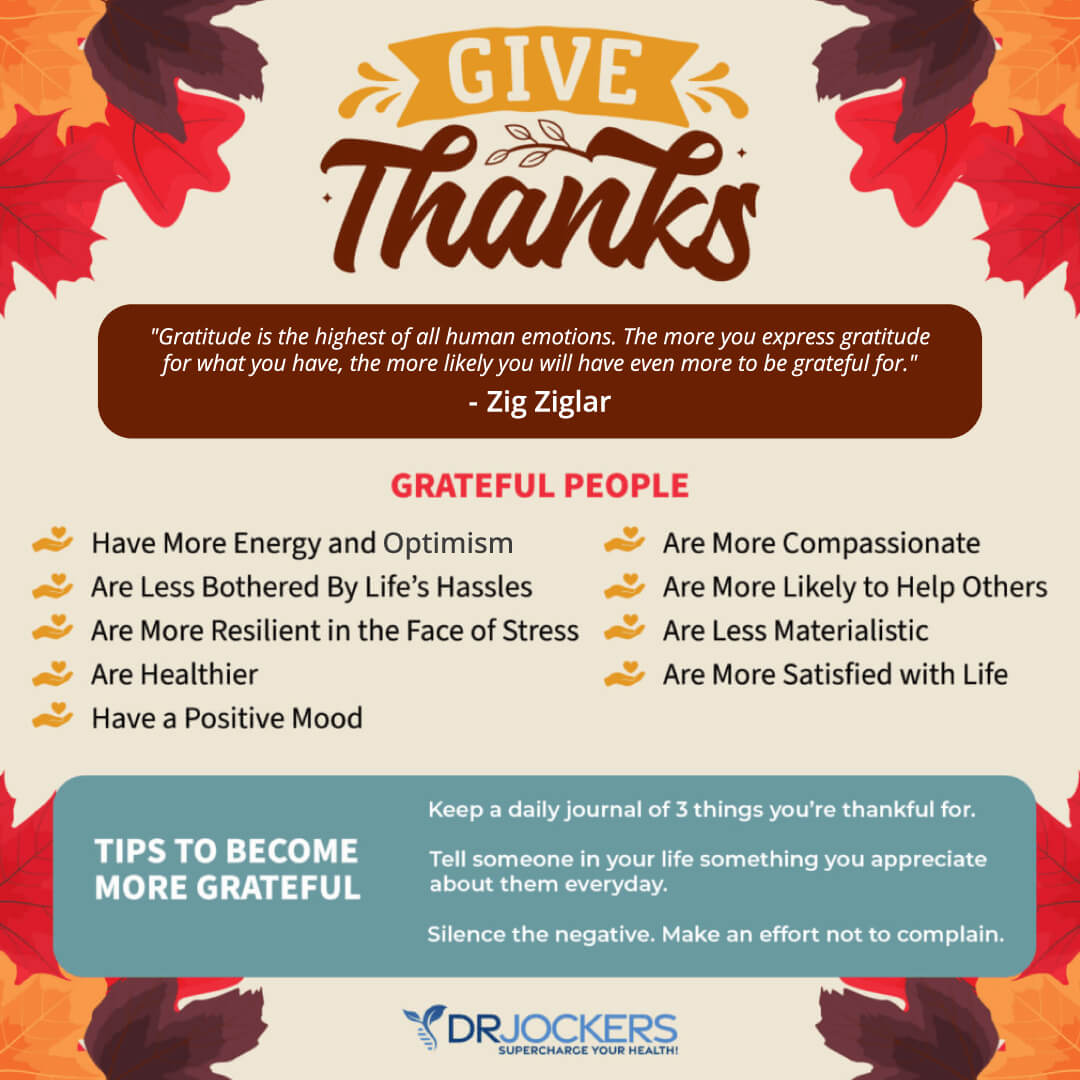
Optimize Hydration
Optimal hydration and drinking enough water throughout the day are essential for healthy energy levels and your overall health. After not drinking all night, morning hydration is incredibly important for your energy, detoxification, digestion, metabolism, and immune system. Start your day with 16 to 32 ounces of water each morning.
Keep drinking water throughout the day. Aim for at least 8 to 10 glasses, or more if you need it. Listen to your body and hydrate it when it’s thirsty. Add some lemon or lime juice or apple cider vinegar (ACV), or a pinch of salt for extra cleansing benefits, vitamins, and electrolytes. You may add some cucumbers or berries for some delicious vitamin water.

Get Moving Early in the Day
Regular exercise and staying active throughout the day are non-negotiable for your energy levels. Moving your body can help to increase blood flow and circulation. It also helps to improve stress, mental fatigue, anxiety, and depression. It may also boost your brain power and help you focus better.
Simply put, movement helps you feel energized during the day and get rest at night. I recommend that you exercise for a minimum of 20 to 30 minutes each day, mixing cardiovascular and strength or resistance training activities.
Stay active during the day by stretching regularly, going for a short walk during lunchtime, rebounding on your trampoline, playing with your kids, or walking your dog. If you struggle with morning fatigue, moving early in the day can set you up for an energy-filled day.
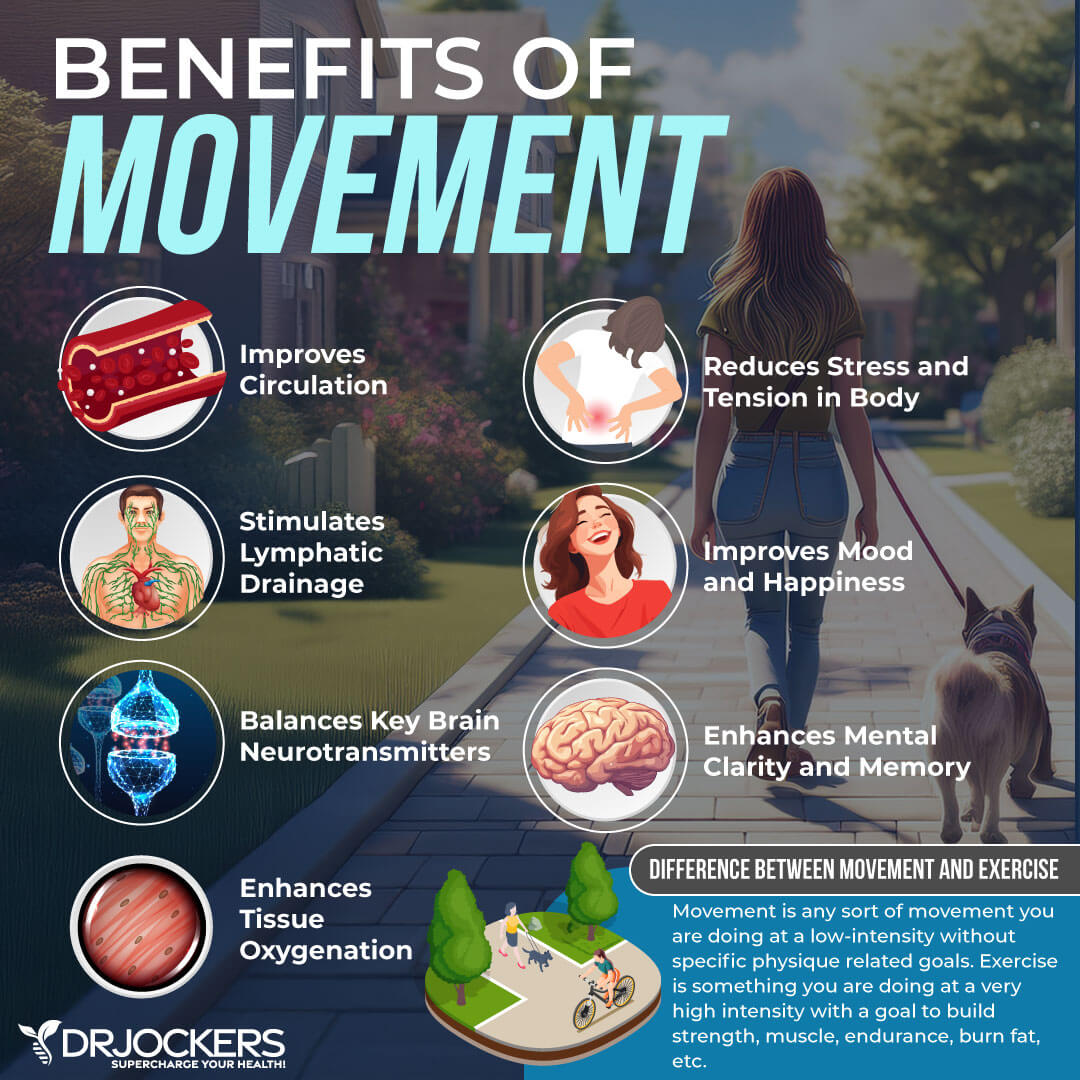
Get Sun Exposure Early in the Day
Depleted vitamin D levels can lead to fatigue and low energy. Vitamin D is incredibly important for your brain health, immune system, gut health, bones, lungs, and energy. This is where the sun comes in. The sun not only helps to improve your vitamin D levels but can also help to boost your mood and energize your body.
Getting sun exposure early in the day can help boost your energy right away and help you carry on with your day. The morning is a perfect opportunity to take a short nature walk, do some ground, and breathe in some fresh air. Even if it’s cold outside, I recommend that you step outside for a short time to enjoy the sunshine as long as it’s out.
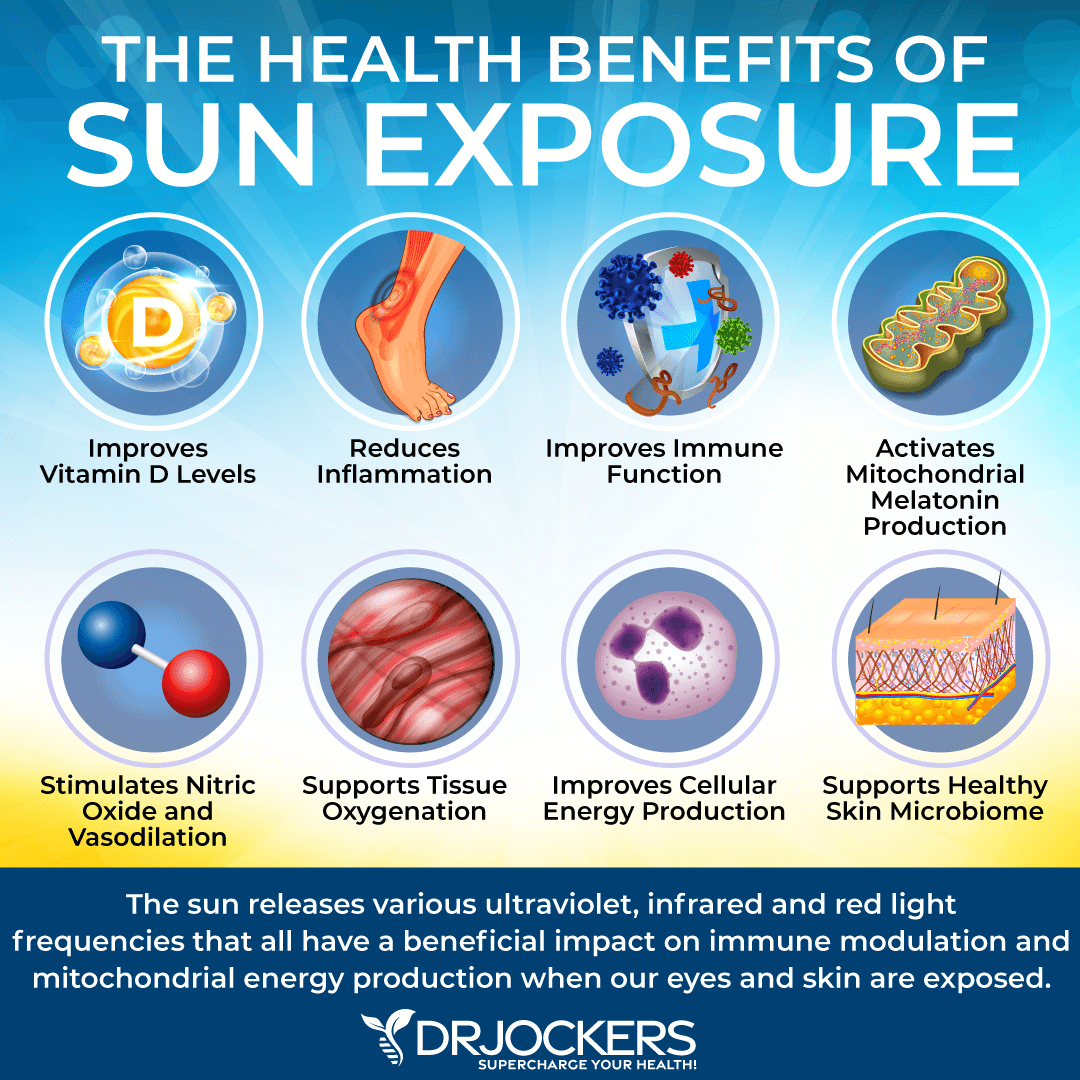
Anti-Inflammatory Nutrition Plan
Eating a diet high in inflammatory foods, such as refined sugar, refined carbs, refined oils, unhealthy fats, junk food, artificial ingredients, and toxins, and low in nutrient-dense whole foods can seriously compromise your energy levels. To regain your energy, it is important that you remove inflammatory foods from your diet and eat an anti-inflammatory nutrition plan.
Fuel your body with plenty of nutrient-dense, anti-inflammatory foods, such as leafy greens, such as kale, spinach, and collard greens, non-starchy vegetables, such as celery and cucumber, low-glycemic index fruits, such as lemon and berries, healthy fats, such as avocadoes and coconut oil, and clean protein, such as organic grass-fed beef, pasture-raised poultry, wild-caught fish, and free-range eggs, nuts and seeds, such as almonds and hemp seeds.
Don’t forget about anti-inflammatory herbs, spices, and superfoods, such as ginger, turmeric, rosemary, oregano, Reishi mushrooms, and Cordyceps. Eat plenty of fermented foods, such as sauerkraut, kimchi, and kefir for gut health. To learn more about an anti-inflammatory nutrient plan, read this article.
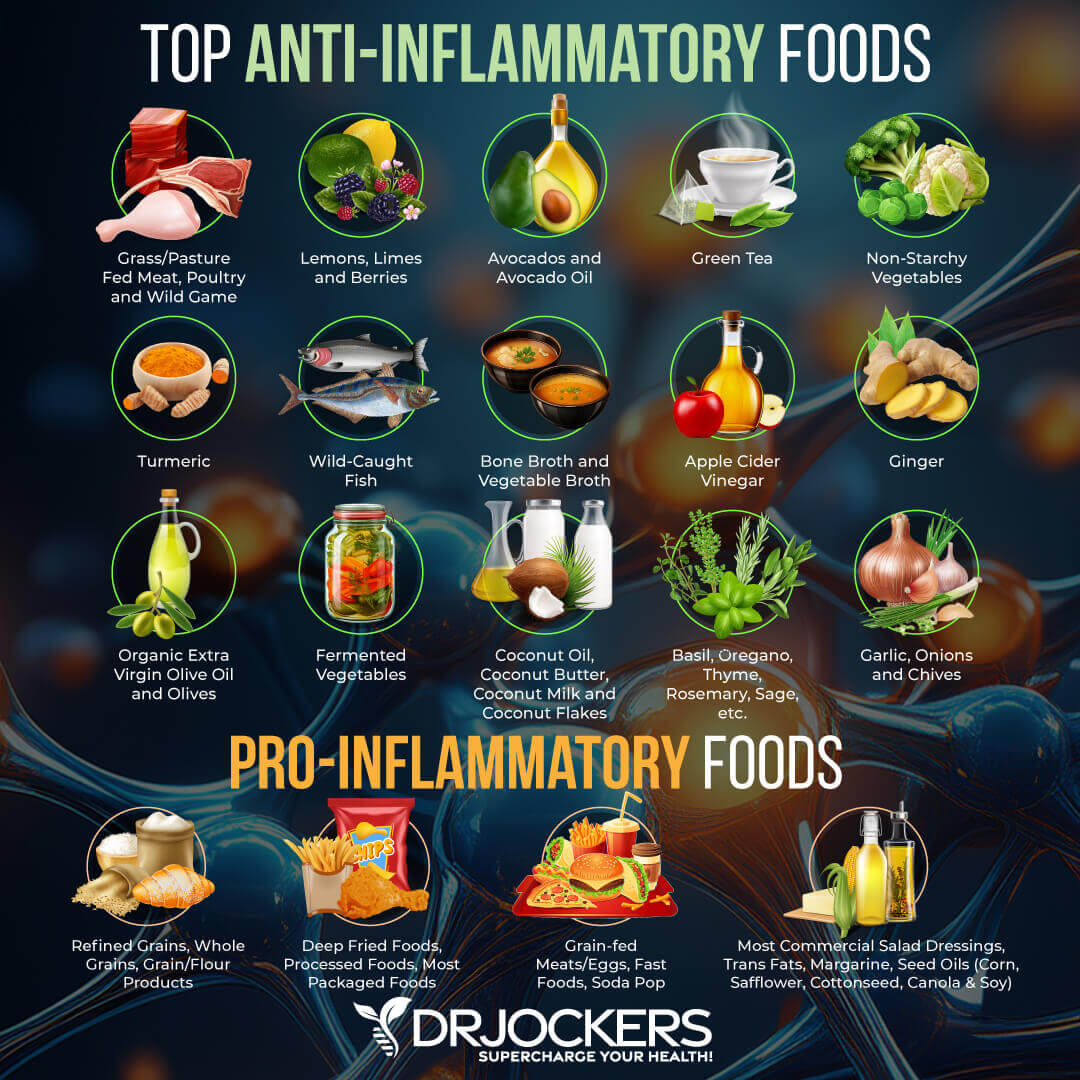
Bonus Step: Supplements
Additionally, to these 7 powerful steps to improve your energy levels, I recommend a few supplements for their energy-boosting benefits.
Adapt Strong
Adapt Strong is the number one supplement I recommend to my patients who are looking to increase their energy, reduce their stress levels, and boost their immune system. This supplement uses the power of energy-boosting adaptogenic herbs and nutrients, such as Panax Ginseng, Eleuthero, Schisandra, Rhodiola, Licorice Root, Adrenal Gland from Argentinian bovine, and vitamins B5, B6, and C.
Adapt-Strong supports normalizing the hypothalamic-pituitary-adrenal axis when under stress. It helps to improve your energy and mood, increase your endurance and strength, buffer the effects of stress, and boost your immune system.
Final Thoughts
Low energy is a serious issue that millions of people are facing every day. The truth is that having low energy is far from normal.
You don’t have to feel tired all day and rely on caffeine and sugar to keep you awake. You can combat fatigue and enhance your energy naturally by following the 7 strategies and using the energy-boosting supplements I recommend.
If you want to work with a functional health coach, I recommend this article with tips on how to find a great coach. Our website offers long-distance functional health coaching programs with our world-class team of health coaches. For further support with your health and other goals, just reach out—our fantastic coaches are here to support your journey.
Inflammation Crushing Ebundle
The Inflammation Crushing Ebundle is designed to help you improve your brain, liver, immune system and discover the healing strategies, foods and recipes to burn fat, reduce inflammation and thrive in life!
As a doctor of natural medicine, I have spent the past 20 years studying the best healing strategies and working with hundreds of coaching clients, helping them overcome chronic health conditions and optimize their overall health.
In our Inflammation Crushing Ebundle, I have put together my very best strategies to reduce inflammation and optimize your healing potential. Take a look at what you will get inside these valuable guides below!





your articles would seem more professional if you had them proof read, way too many “such as” etc.
Thanks for sharing!
Wow janet….praying for you
Thank you Dr. Jocker!! I have learned so much from you and have recommended you to many of my friends who feel the same.
You have been and are extremely helpful
to many of us. Thanks, again
Sandy R.
Thanks so much Sandy!! Blessings to you!